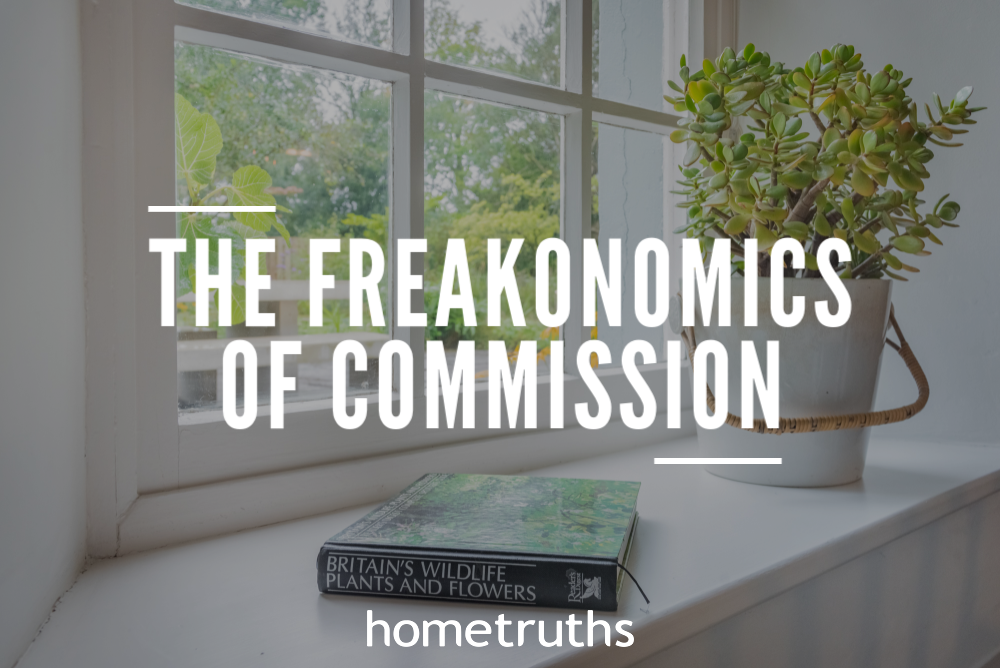In their fascinating book Freakonomics, (subtitled “The hidden side of everything”) Levitt and Dubner explore the issue of estate agents’ commissions. They propose that one way of discovering whether an estate agent is doing their best for their client, is to measure the difference in the results achieved for their clients, and those of their own personal home sales.
The results were not particularly surprising, at least, not to me. (Incidentally, the best property brochure I’ve ever seen was produced by an estate agent to sell his own house.) It turns out that an estate agent keeps their own home on the market an average of ten days longer, and sells it for an extra 3%. (On a £500,000 home, that’s £15,000.) The book goes on to explain, “when he sells his own house, an agent holds out for the best offer; when he sells yours, he pushes you to take the first decent offer to come along”.
The authors believe that the difference in the agent’s commission between an asking price offer, and one say, 10% below the asking price, is so little that they will recommend the offer is accepted.
Let’s look at some figures: assuming a sales commission of 1.5% on a house worth £500,000, the seller will pay the agency £7,500, about 5% of which will go to the sales negotiator, or £375. If an offer is received of £450,000, the negotiator’s commission will plummet to £337.50. So he stands to lose £37.50 against the seller’s loss of £50,000. Now imagine that this particular house has been on the market for a few months, it’s two more weeks until payday, and his girlfriend’s birthday is looming. What is he going to do?
When the seller asks him for his advice on whether or not to take the offer, what is he going to say? The negotiator would much prefer a certain £337.50 than a possible £375, and who can blame him?
Either we need better-trained, highly-motivated, somewhat altruistic negotiators with the integrity of a nun, or else we need a better system. And for me, and all those sellers out there, it can’t come soon enough.
If you’d like my help to sell your home more effectively, please answer a few short questions here and if I think I can help you, I’ll be in touch.




What do you suggest?!
It’s a good question! The most important change which needs to happen right now (in my opinion) is to ensure we always pay our estate agent top dollar. Paying well will definitely help our agent feel motivated, and onside, but that still won’t overcome this problem of the disconnect, between commission and sale price. One option would be for a seller to be able to choose which marketing level he wanted, kind of a ‘pick and mix’, so that he was in control of his own marketing spend. This could include an optional fee for negotiating on sale pice, weighted towards a ‘best price’ outcome. There are also, in my experience, plenty of sellers ready and willing to deal with their buyers directly, and so eradicate this issue.
What are your thoughts on this matter?
As a buyer’s agent I’m motivated to secure the best all-round deal for my clients, which may or may not include buying below the asking price. When dealing with people’s homes this should not become an adversarial contest over the last Pound (investment and commercial property might be different). Good estate agents should be advising their clients in a similar way and whilst I agree that dropping the price is often too easy a solution, there may be reasons other than commission so to do. A key factor is often timing, and the negotiator’s commission could be weighted depending on how quickly they achieved an acceptable offer. The best deal, in my opinion, is one where both parties come away satisfied they have achieved their needs and are willing to co-operate to push through to exchange and completion. Good representation, on both sides, will facilitate this and help diffuse issues along the way.
Hi Nick, that’s an interesting point of view. One problem with unique properties, is that they often take much longer to sell for the maximum potential price, so I prefer to incentivise an individual negotiator with a stepped fee structure. Eg they get 5% of everything over the asking price – then they’re really motivated to sell their client’s home for the highest price.
Thanks for sharing!
Sam